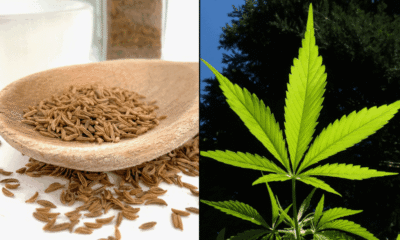Election day is just a month away, and this year millions of voters will decide the fates of at least seven pro-cannabis and psychedelic ballot measures in states across the nation.
Here’s a quick look at the measures up for consideration and what the various initiatives would do.
Arkansas
Issue 3, as it’s formally known in Arkansas, is one of the few proposed ballot measures still up in the air due to a legal battle between supporters and the secretary of state over how many signatures were submitted to get the question before voters.
The most recent development was just last week, when the state Supreme Court ordered the secretary of state to finish counting roughly 18,000 additional signatures that were disqualified by what the campaign called an “arbitrary” technicality. It’s not yet clear who will win out in that battle.
If ultimately successful, Issue 3 would expand the state’s existing medical marijuana program, making it easier for more patients to obtain recommendations and purchase legal cannabis. It would also legalize home cultivation.
Florida
Amendment 3, which has been primarily bankrolled by multistate operator Trulieve Cannabis Corp. (CSE: TRUL) (OTCQX: TCNNF), would legalize recreational marijuana in Florida. The amendment has one of the highest bars to clear, needing at least 60% of voter support to win, because it’s an amendment to the state constitution.
The ballot question has divided the Republican Party. Gov. Ron DeSantis has been a vocal opponent, but former President Donald Trump has thrown his support behind the measure.
If approved, the amendment would legalize the purchase and possession of cannabis for anyone 21 and over, but home cultivation would remain prohibited. The amendment would also allow lawmakers to authorize more cannabis business permits, but the existing 26 licensed medical marijuana companies would get first crack at recreational sales.
Massachusetts
Question 4 in Massachusetts could make the state the third in the nation to legalize some psychedelic drugs, following Oregon and Colorado.
If approved, the initiative would legalize personal possession and consumption of psilocybin, psilocin, mescaline, ibogaine and dimethyltryptamine (DMT). Large-scale commercial production and sales would remain prohibited, however, and the only sales would be permitted strictly at licensed health care facilities, which would also oversee patient use of the drugs.
Home cultivation of some psychedelics, such as magic mushrooms, would also be allowed starting in December. The larger health care rollout would be phased in over multiple years and wouldn’t be complete until 2028 at the earliest.
Nebraska
Nebraska voters have a pair of questions related to medical marijuana: Initiative 437, which would legalize medical possession and use of cannabis, and Initiative 438, which would set up a new regulatory structure for private companies.
The initiatives may still get yanked off the ballot before Election Day, however, due to an ongoing investigation by the state attorney general’s office into possible signature-gathering fraud.
If the measures remain and are approved, they would establish yet another state cannabis market in one of a few remaining states with essentially zero legal marijuana. Similar ballot measures in the state failed to qualify for the ballot in 2020 and 2022.
North Dakota
Measure 5 would legalize recreational marijuana in North Dakota. Voters rejected similar measures at the ballot box in 2018 and 2022, but the state did adopt medical cannabis in 2016.
If approved, the state would be required to issue industry regulations by October of next year for up to seven grow operations and 18 recreational retailers. It would also allow home cannabis cultivation.
The campaign behind the measure, New Economic Frontier, argued that the measure would help redirect law enforcement resources to more pressing issues, such as combatting the opioid crisis. An opposition campaign, The Brighter Future, simply pointed out the previous voter rejections.
Oregon
Measure 119 is perhaps the only tangential statewide ballot measure related to the cannabis or psychedelics industries that would not legalize any new substance. Rather it is aimed at making it easier for workers in the existing marijuana trade in Oregon to join labor unions.
If approved, the new law would require cannabis retailers and processors – but not farmers – to submit signed labor peace agreements to the state as evidence that they’re remaining neutral when workers debate whether to join a labor union.
The initiative has the backing of the United Food and Commercial Workers, which has been organizing marijuana industry employees for years.
South Dakota
Initiated Measure 29 would legalize recreational marijuana in South Dakota, another state that’s on its third attempt to do so.
Voters first approved adult-use cannabis in 2020, the same year voters approved medical marijuana legalization, but it was struck down by the courts after a challenge from Gov. Kristi Noem and other opponents. A second attempt in 2022 fell short at the ballot box.
If activists are successful this time around, the measure would broadly legalize adult-use cannabis and home cultivation, but most regulatory and industry details would be left to the legislature to determine, such as license caps and marijuana product tax rates.

 California Cannabis Updates1 year ago
California Cannabis Updates1 year ago
 Breaking News1 year ago
Breaking News1 year ago
 best list1 year ago
best list1 year ago
 Business1 year ago
Business1 year ago
 Business1 year ago
Business1 year ago
 cbd1 year ago
cbd1 year ago
 Bay Smokes1 year ago
Bay Smokes1 year ago
 autoflower seeds1 year ago
autoflower seeds1 year ago












































